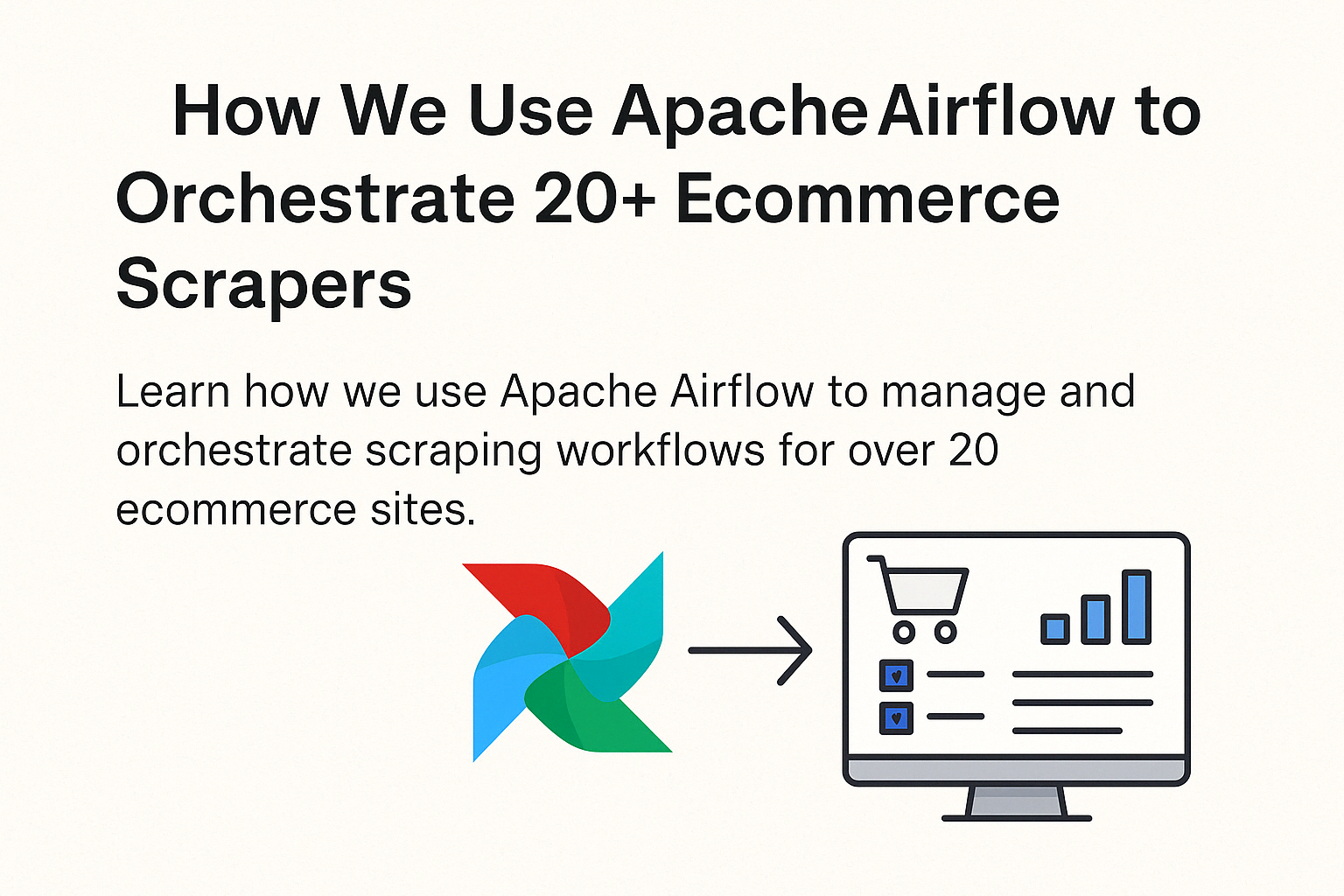How Multisite Scraping is Revolutionizing Dat...
The beauty industry is changing fast. Products go viral...

At BeautyFeeds.io, we track a growing number of beauty product SKUs across a wide range of ecommerce websites, including global retailers like Sephora, Ulta, Mecca, and Shopee. Each site has its own structure, behavior, and data challenges.
Managing the complexity of a distributed scraper system manually or with standalone scripts quickly becomes unscalable. That’s why we leverage Apache Airflow to help orchestrate our data collection workflows. Airflow gives us the control and visibility needed for consistent, reliable scraping — without exposing our core scraping infrastructure.
In this post, we’ll walk through how we use Airflow to support recurring, site-specific scraping logic while maintaining modularity and reliability.
Learn more about Airflow’s scheduling capabilities here.
Each DAG corresponds to a target site. A typical flow includes three core steps:
The Airflow model helps isolate flows and ensures task-level failure handling.
We use flexible rules for crawl frequency:
This keeps our crawl efficient without overloading any site.
Once structured, the data is pushed to:
Apache Airflow has helped us move from manually managed scripts to a flexible, observable, and automated scraping pipeline.
If you’re working on large-scale product data extraction or ecommerce intelligence, structured orchestration is essential.
Want to see what kind of data we deliver? Explore BeautyFeeds.io to view our structured beauty product datasets and use cases.